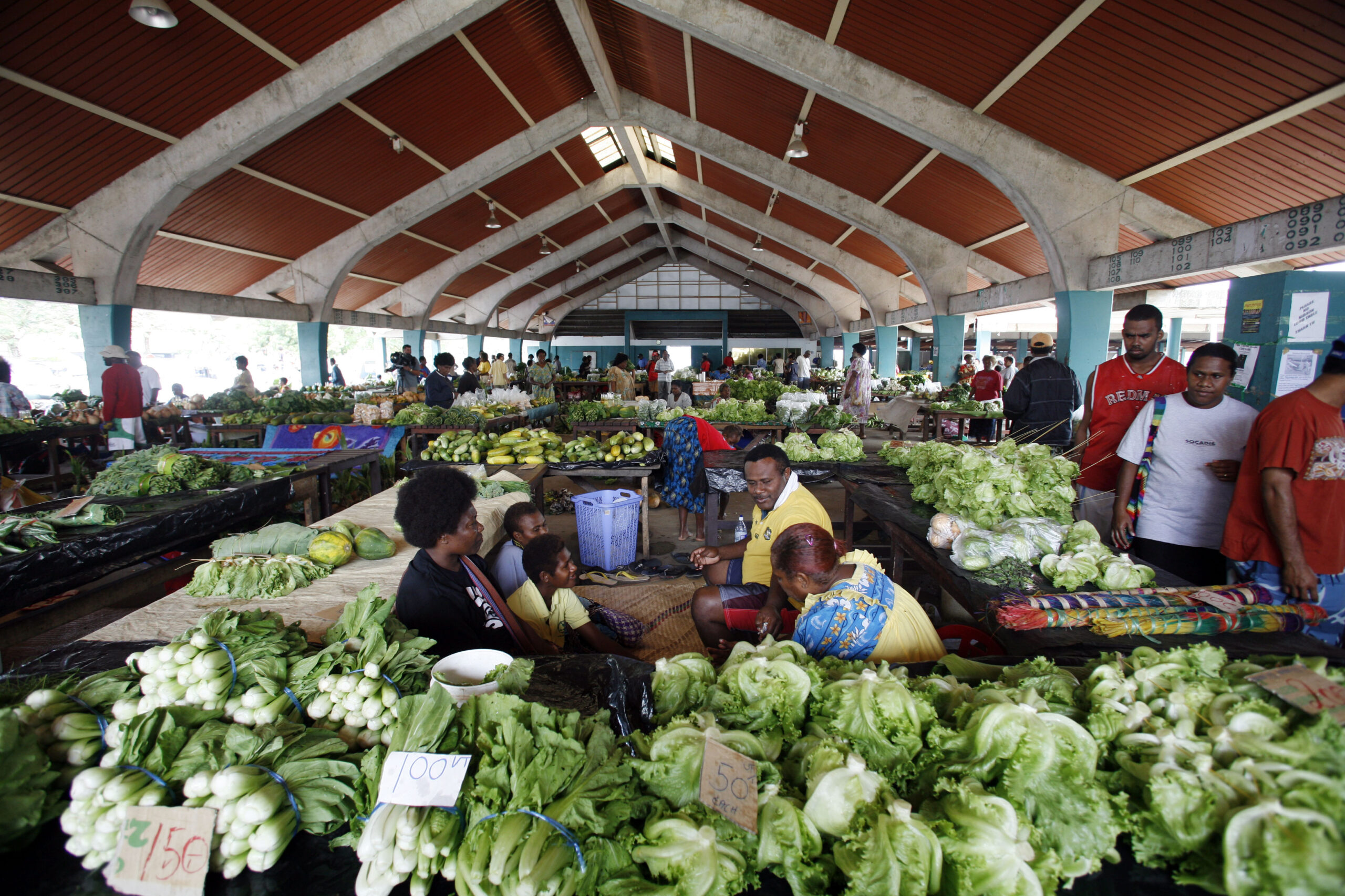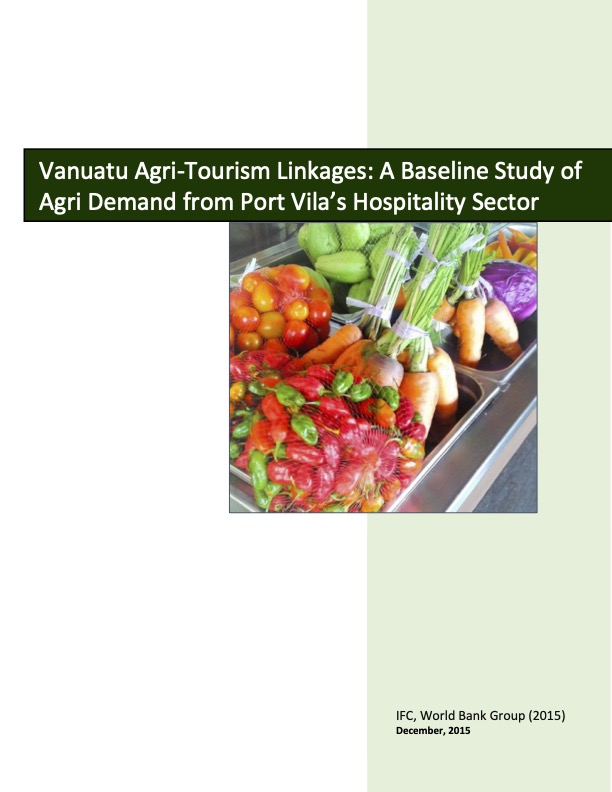A baseline study of agri demand from Port Vila’s hospitality sector.
Summary of Findings
This study aims to analyze the purchasing patterns of Vanuatu’s tourism sector, in order to better understand existing linkages between the tourism and agricultural sectors, and to identify opportunities to improve these linkages. The study has been conducted by the International Finance Corporation (IFC), a member of the World Bank Group.
The research conducted for this report quantifies two issues. First, this report estimates the demand for vegetables, fruits, herbs, meats and dairy products across the hospitality sector in Port Vila. Secondly, based on this demand estimate, as well as on feedback from specialists working in the sector, the report identifies particular items that present opportunities for local agricultural producers: ‘gaps in the market’ which could be filled by import replacement.
The data in this report can be used by the Government of Vanuatu, its donor partners, and the agricultural industry to develop, fund and implement the policies and practices required to increase economic linkages between tourism operators and agricultural producers, thus helping to spread the benefits of Vanuatu’s growing tourism sector to a greater share of the country’s population. Increasing local food production can improve Vanuatu’s trade balance, increase food security, and help to more evenly share the benefits of a growing tourism sector across Vanuatu’s population, which remains chiefly employed in small-scale agricultural production.
In 2014, the tourism sector in Port Vila (hotels and restaurants) spent 1.5 billion Vatu (USD 15.6 million) on procurement of fresh produce items. Of this amount, 54%, or more than 800 million Vatu (USD 8.5 million), is spent on imported items. Specifically:
- Total demand for vegetables is 190 million Vatu (USD 2 million), of which 108 million Vatu (USD 1.1 million) is spent on imports;
- Total demand for fruits is 155 million Vatu (USD 1.6 million), of which 60 million Vatu (USD 0.6 million) is spent on imports;
- Total demand for meats and diary is 1.1 billion Vatu (USD 11.7 million), of which 632 million Vatu (USD 6.7 million) is spent on imports;
o Total seafood1 demand is 234 million Vatu (USD 2.5 million), of which 108.7 million Vatu (USD 1.2 million) - Total demand for herbs is 19.9 million Vatu (USD 0.2 million), of which 3.6 million Vatu (USD 0.04 million) is spent on imports;
This report shows that there are specific items within the import bill that can be produced locally but are either not being produced, or not being produced in sufficient quantities. While meats (including seafood and poultry) and dairy account for 79% of the estimated import bill, Vanuatu also imports significant volumes of staple vegetables and fruits including potato, onion, carrot, capsicum, cauliflower/broccoli, cabbage, tomato, cantaloupe and orange – all of which can be grown in Vanuatu.
The below list accounts for imports in excess of 400 million Vatu (USD 4.2 million), or over 50% of fresh food imports by hotels and restaurants in Port Vila:
- Vegetables, in particular potatoes, onions, carrots and capsicums;
- Fruits, in particular tomatoes, oranges and cantaloupes;
- Seafood items, in particular prawns and fish;
- Meats, in particular pork, lamb, bacon, beef and chicken.
This study therefore identifies meaningful impact that can be delivered by focusing on a particular subset of items.
We recommend a further product-by-product review of high-potential items identified by this report, focusing specifically on the technical feasibility of local production (including impact of seasonal fluctuations in tourism demand), as well as on the supply chain challenges for each item (including review of existing out-grower models being applied in subsectors such as horticulture, coffee, cacao).
(…)






